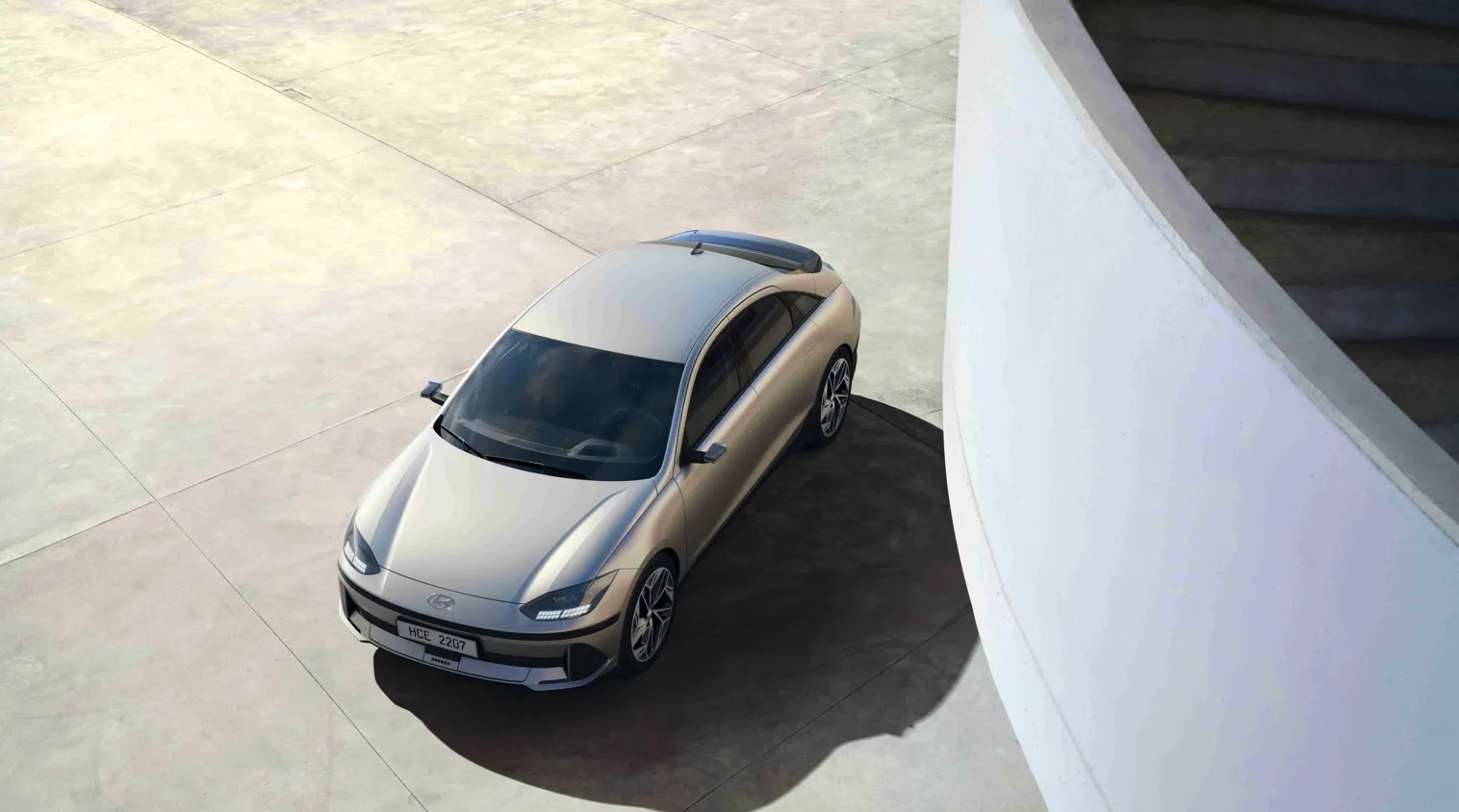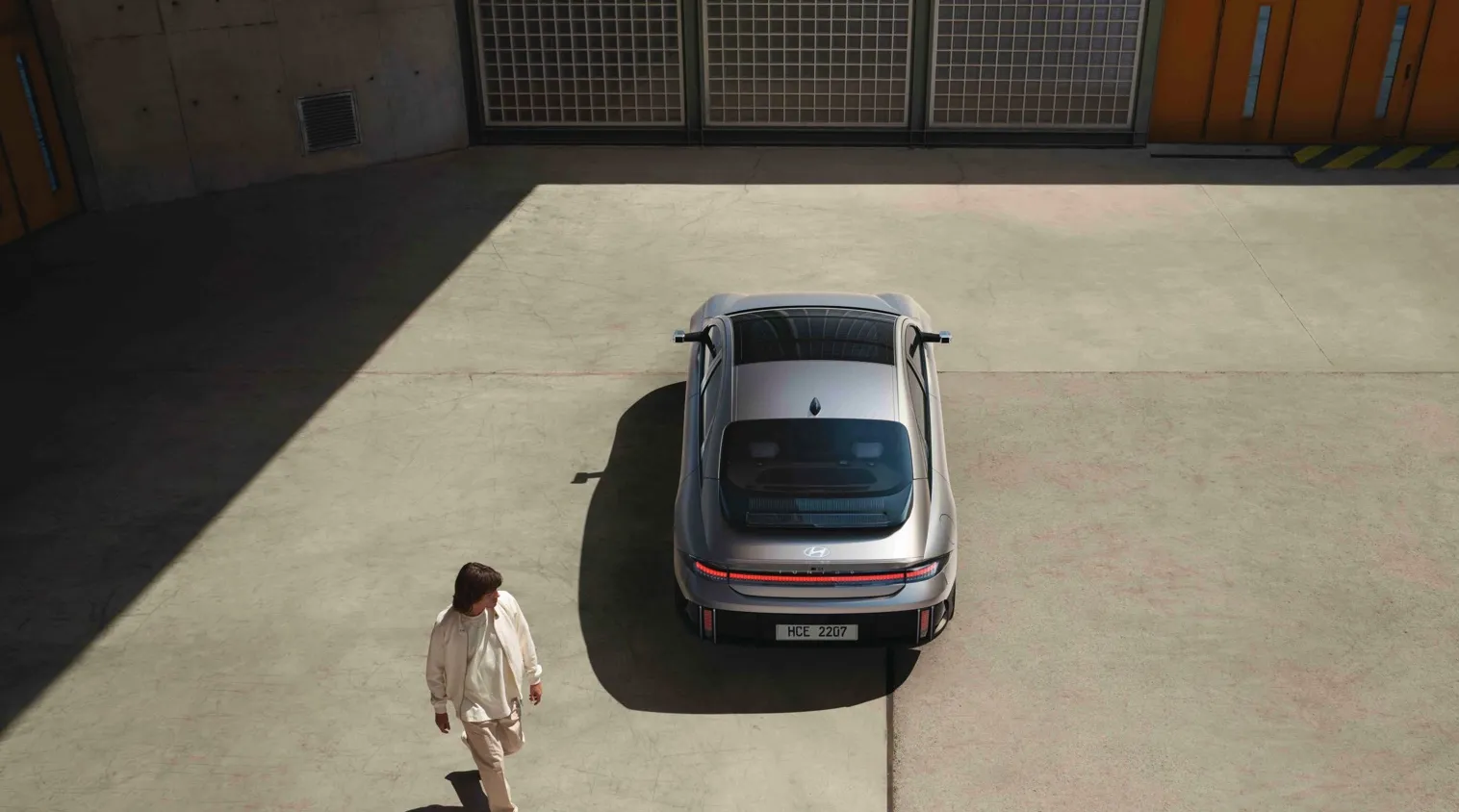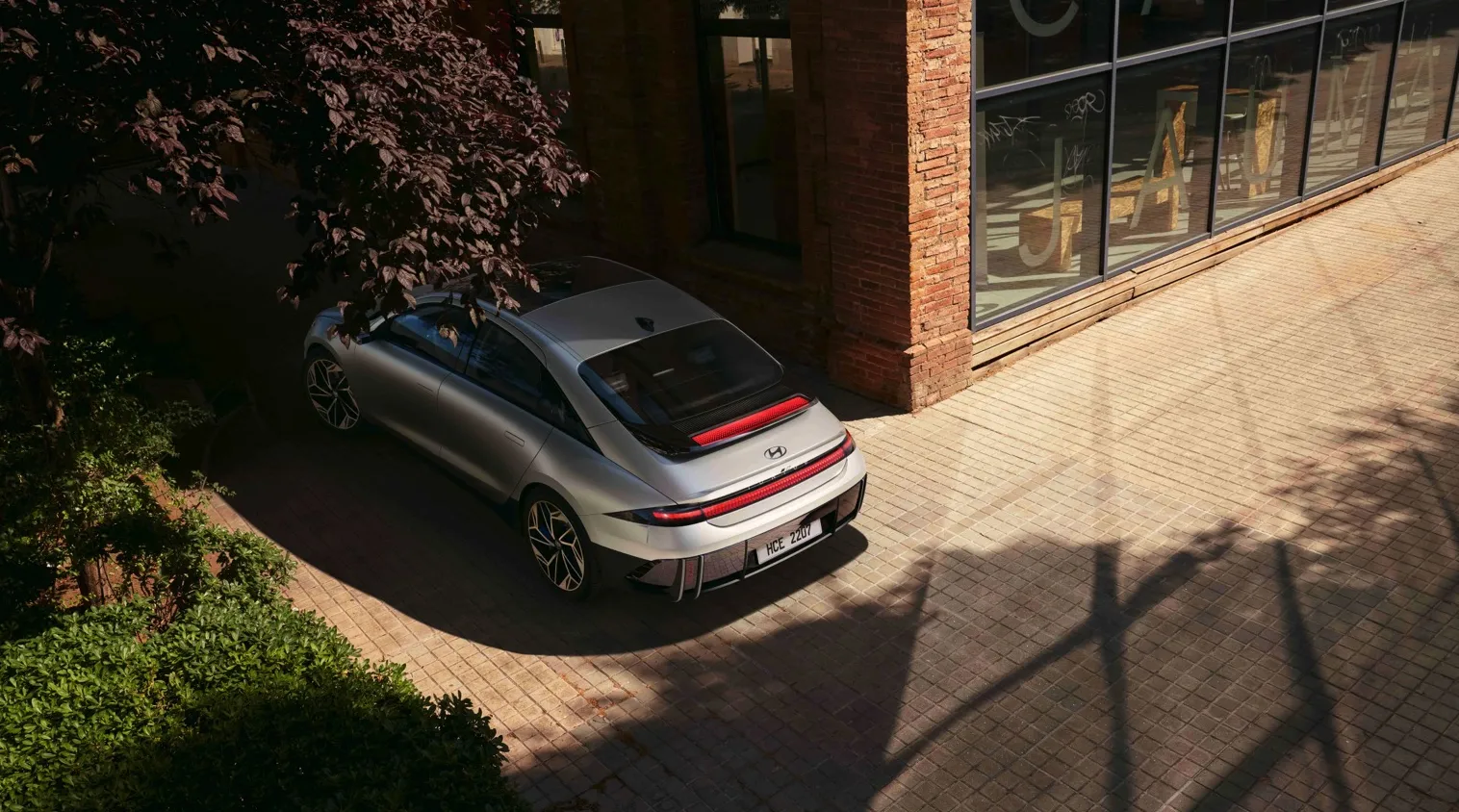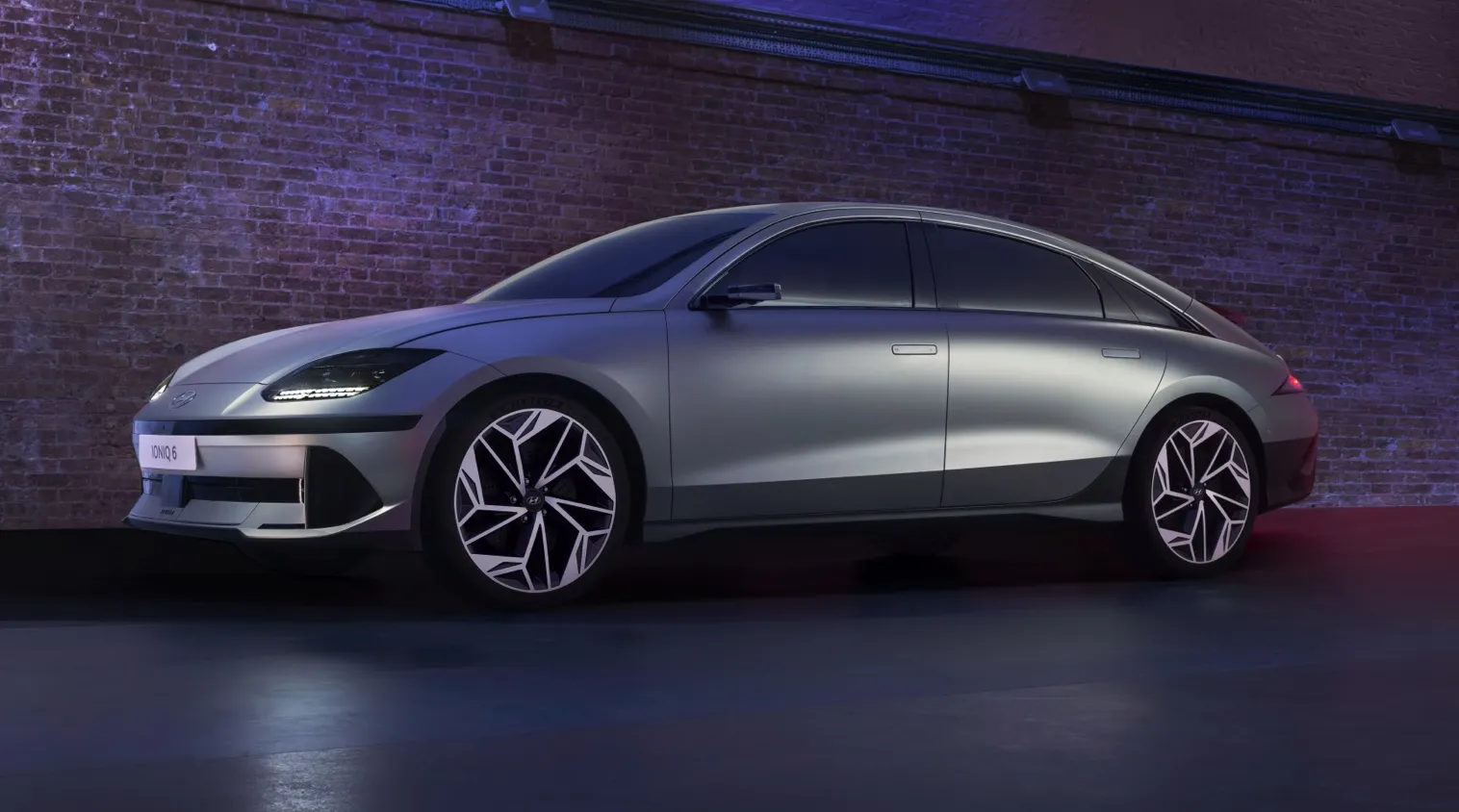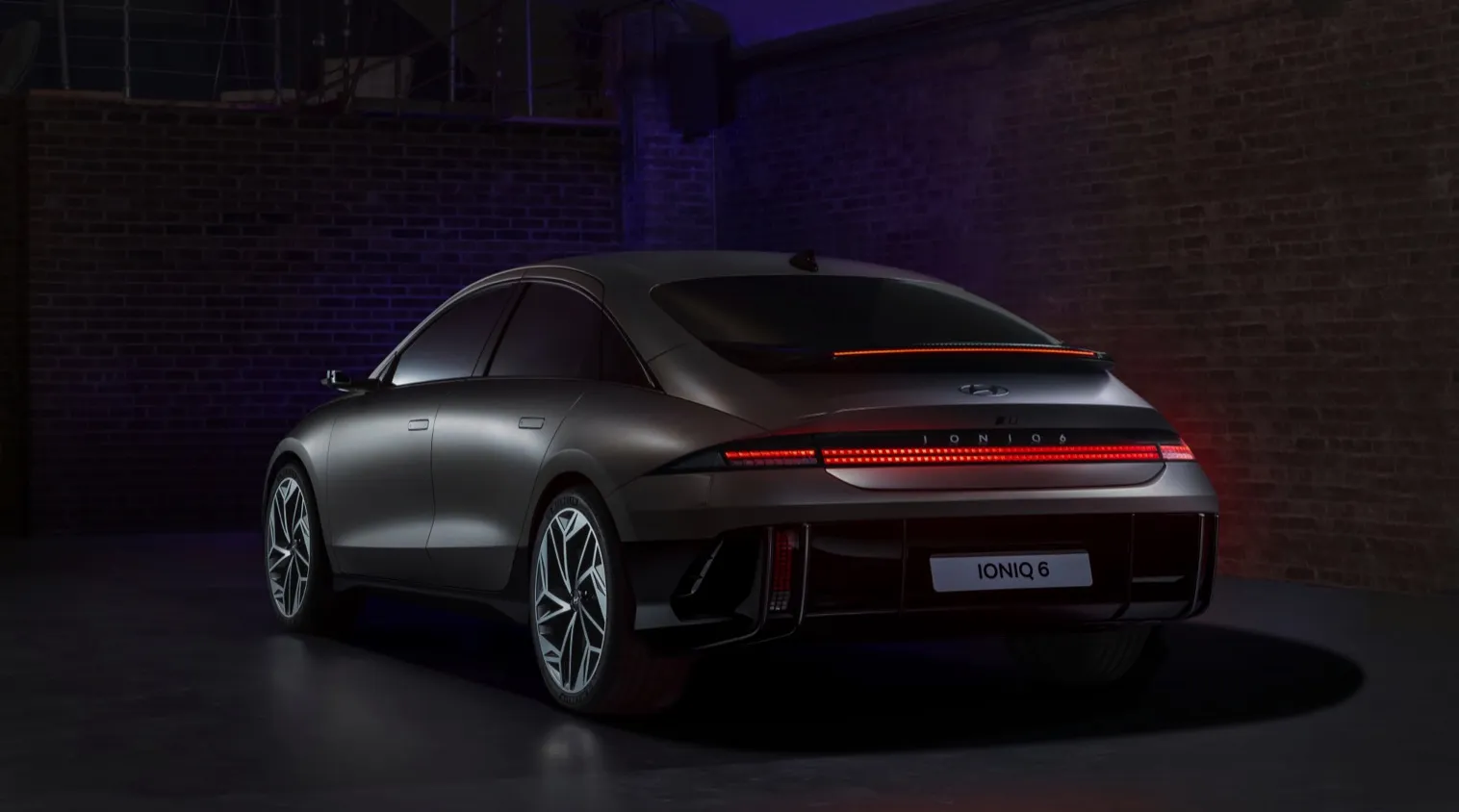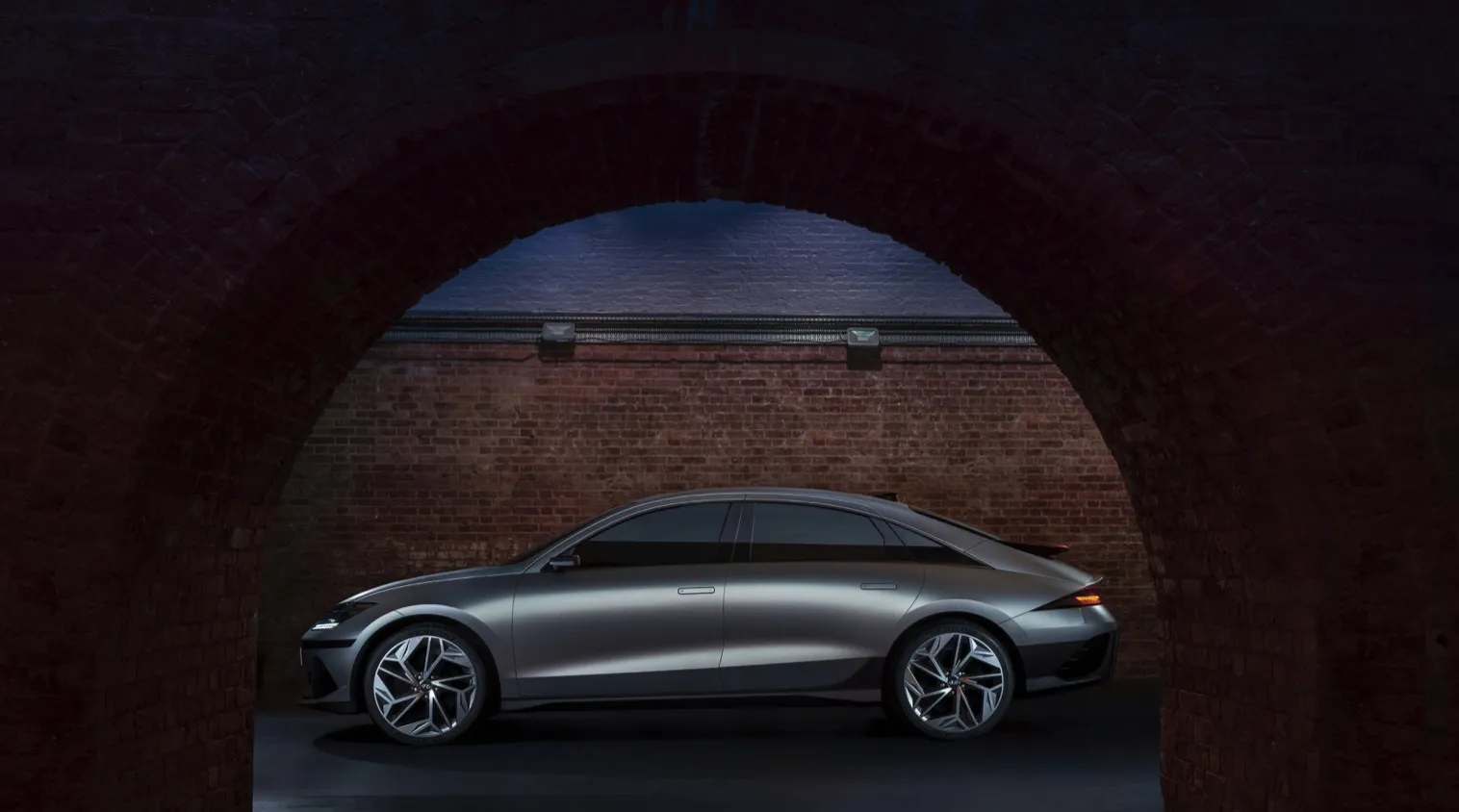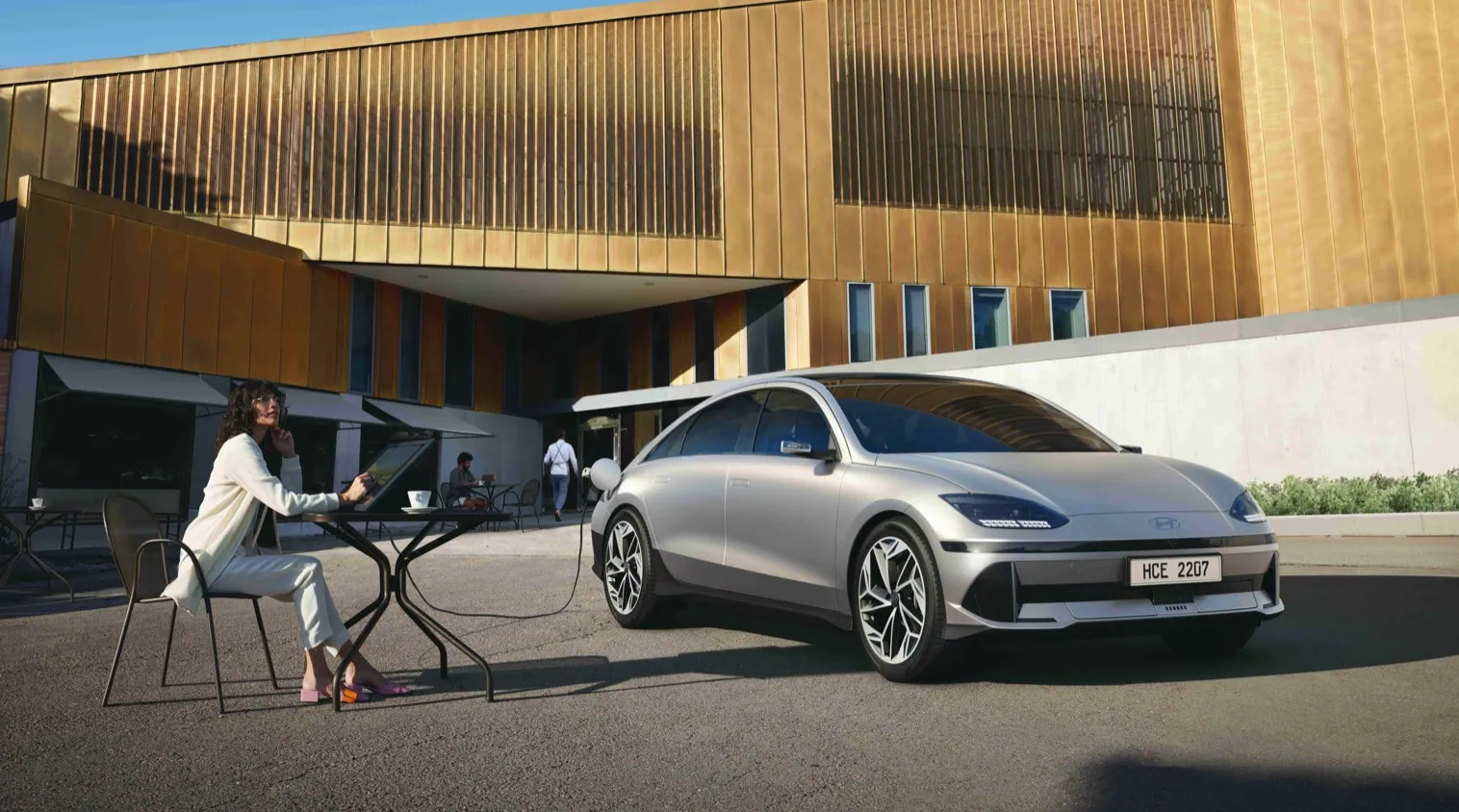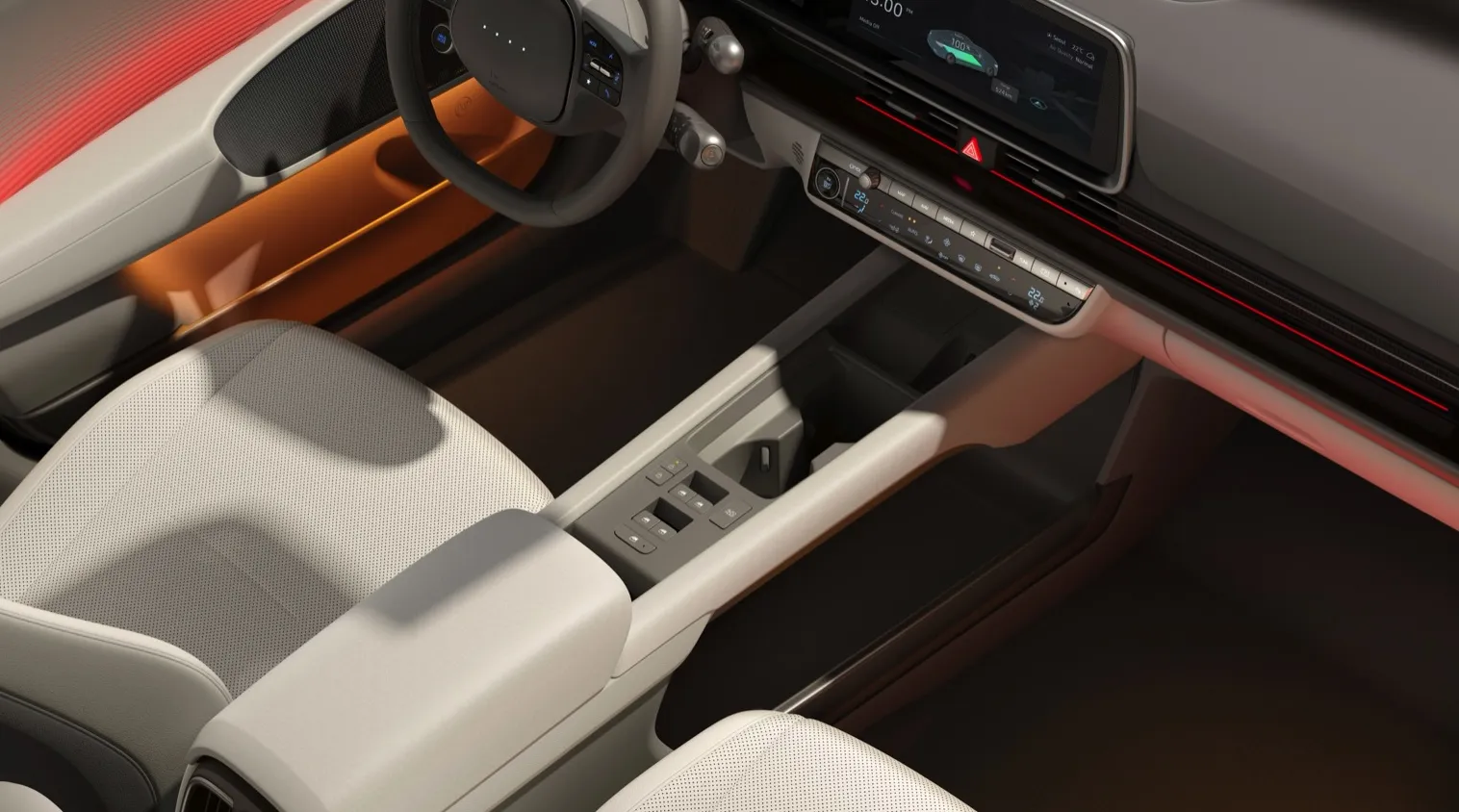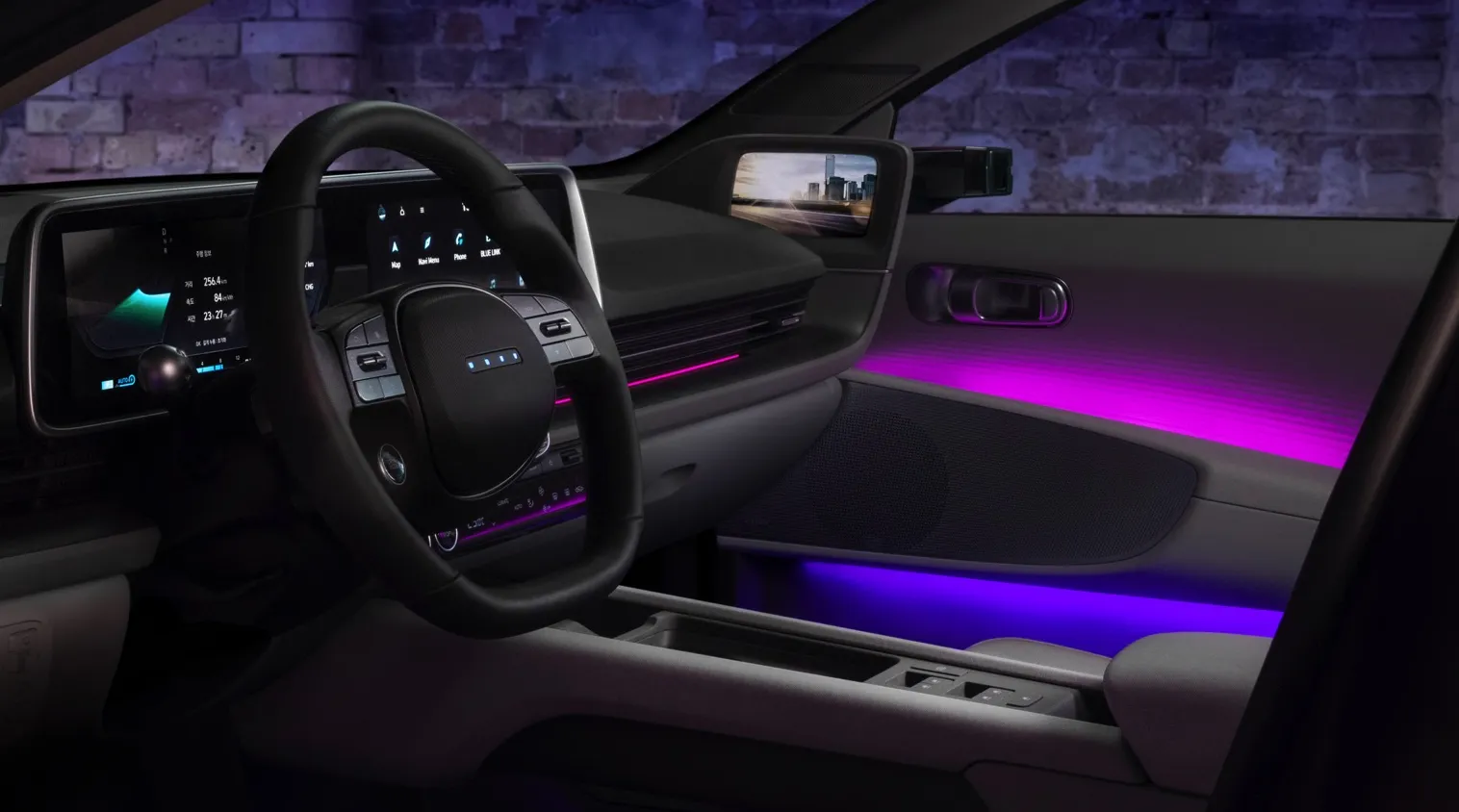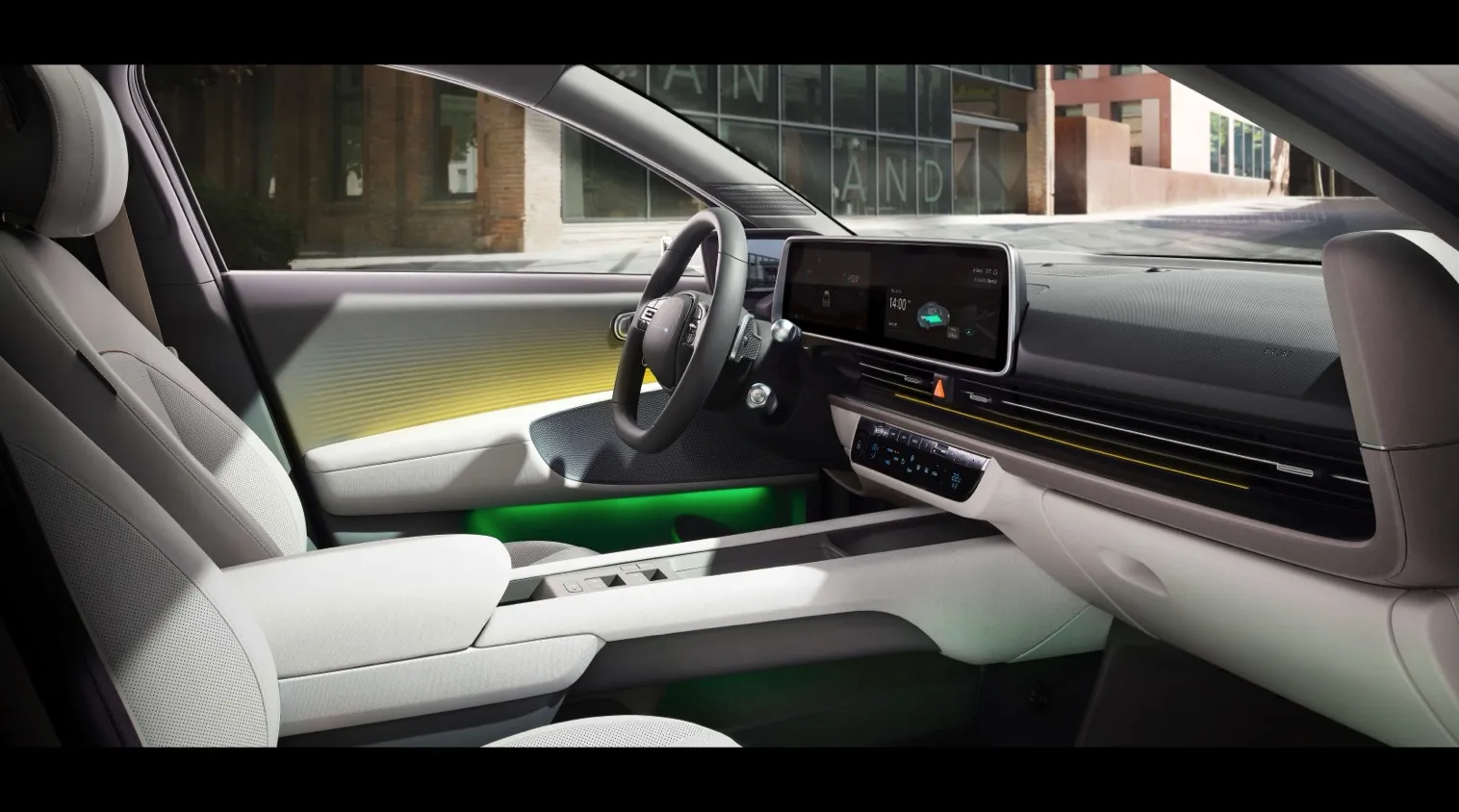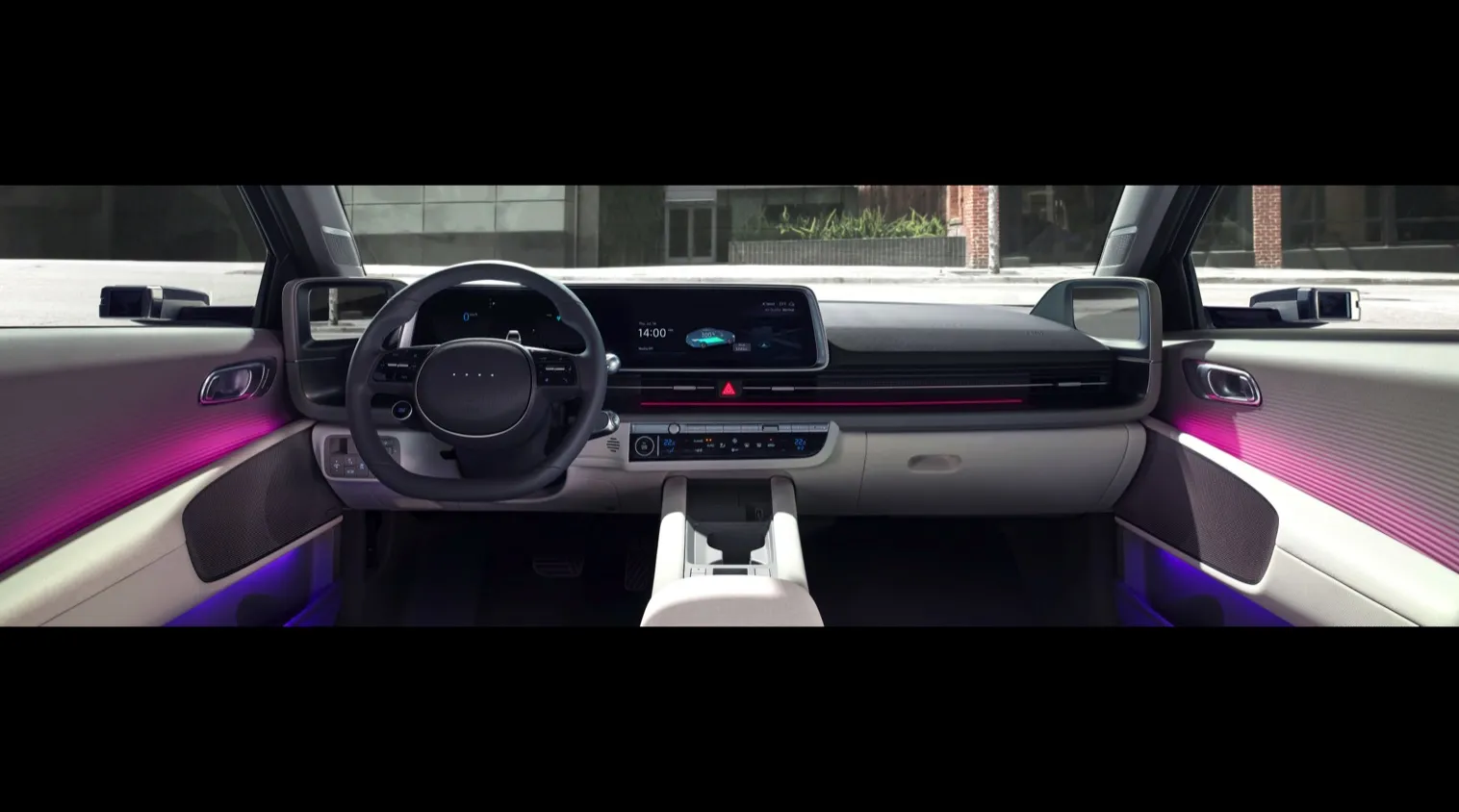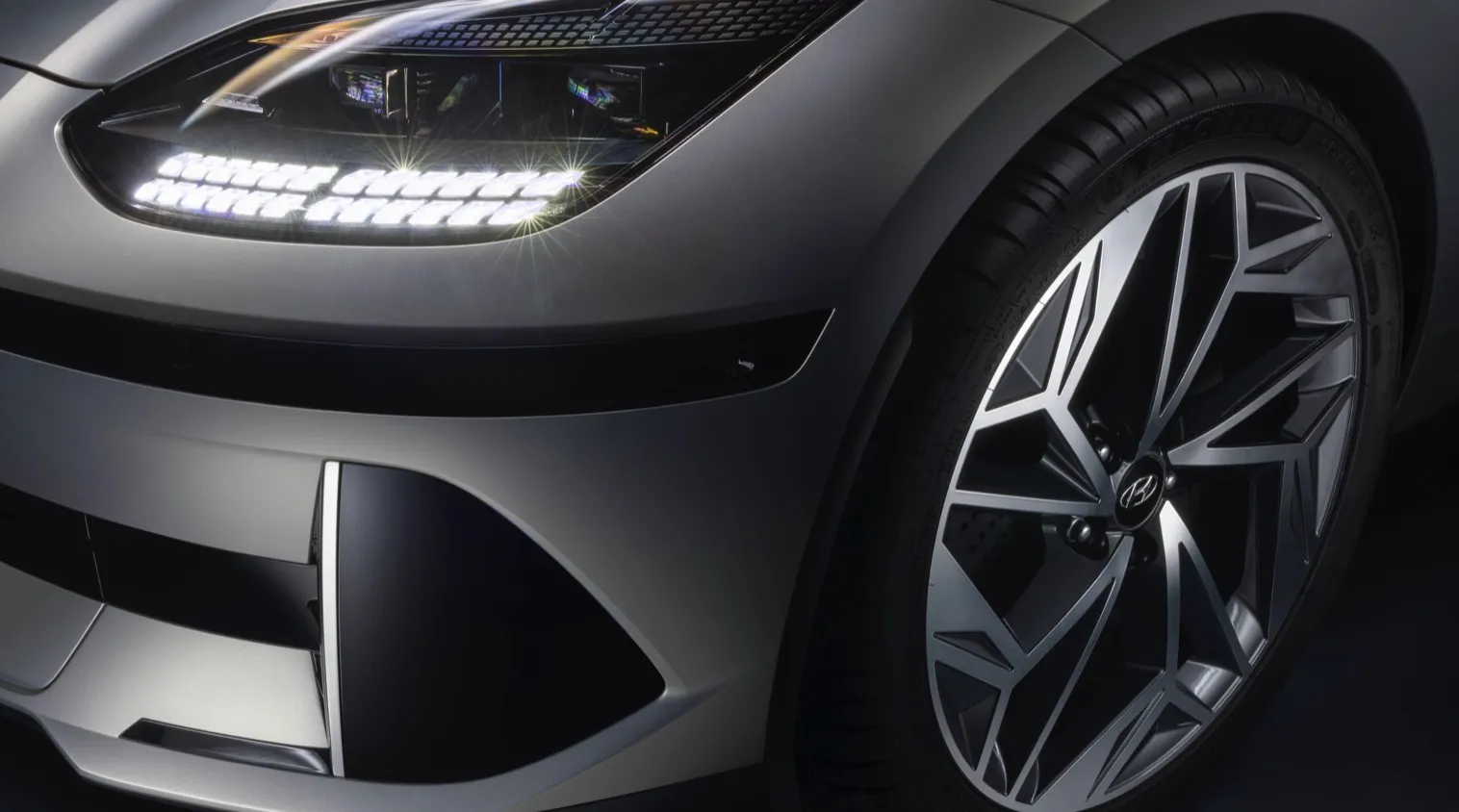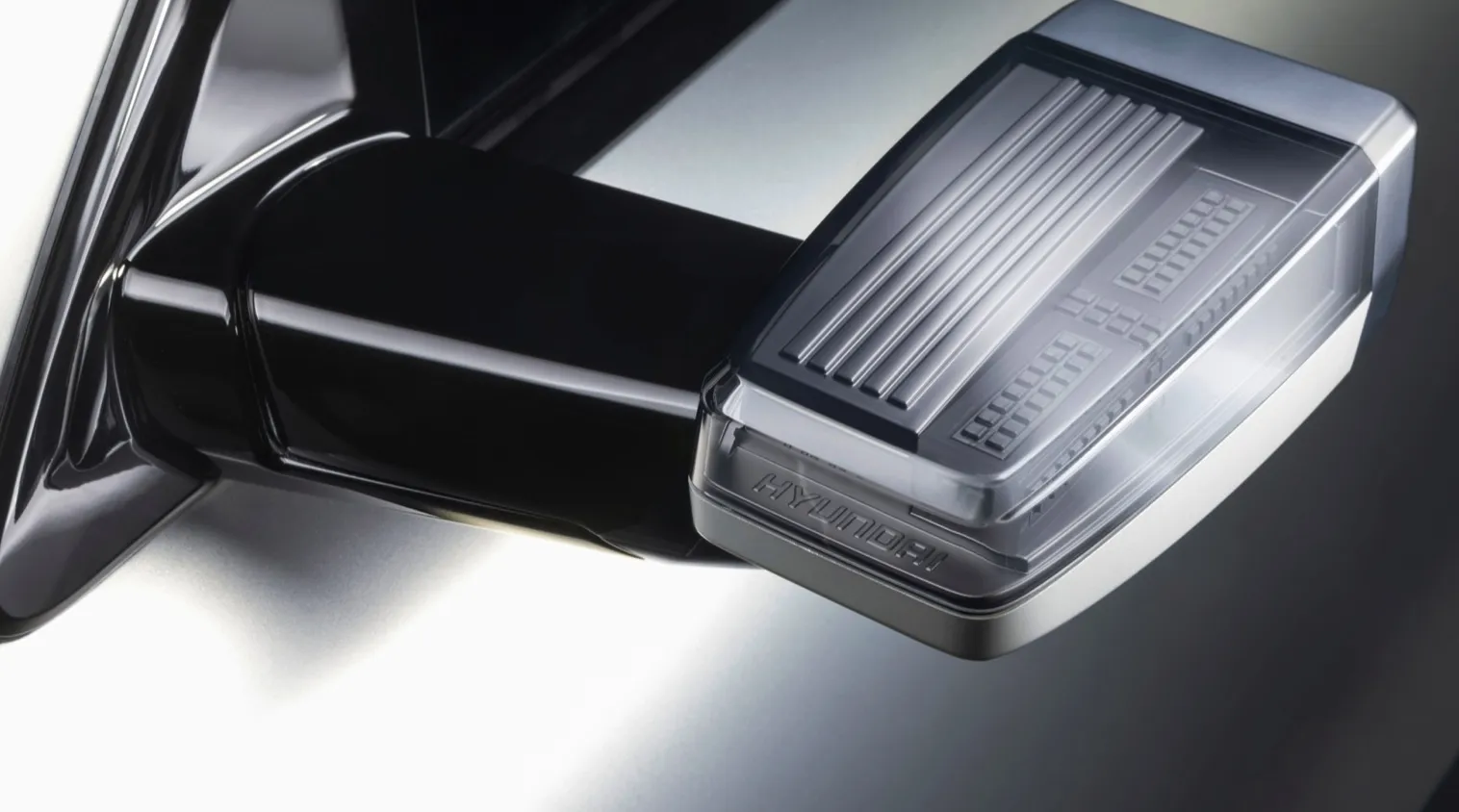Hyundai IONIQ 6 Standard Range 2WD
Model: Hyundai
- : 50.0 kWh *
- : 335 km *
- : 149 Wh/km *
Real Range Estimation
| City - Cold Weather * | 315 km |
| Highway - Cold Weather * | 240 km |
| Combined - Cold Weather * | 280 km |
between 240 - 490 km
| City - Mild Weather * | 490 km |
| Highway - Mild Weather * | 320 km |
| Combined - Mild Weather * | 395 km |
Performance
| Acceleration 0 - 100 km/h | 8.8 sec |
| Top Speed | 185 km/h |
| Electric Range * | 335 km |
| Total Power | 111 kW (151 PS) |
| Total Torque | 350 Nm |
| Drive | Rear |
Battery
| Nominal Capacity | 53.0 kWh |
| Battery Type | Lithium-ion |
| Number of Cells | 264 |
| Architecture | 800 V |
| Warranty Period | 8 years |
| Warranty Mileage | 160,000 km |
| Useable Capacity* | 50.0 kWh |
| Cathode Material | No Data |
| Pack Configuration | 132s2p |
| Nominal Voltage | 480 V |
| Form Factor | No Data |
| Name / Reference | No Data |
Bidirectional Charging (V2X / BPT)
Vehicle-to-Load (V2L)
| V2L Supported | Yes |
| Max. Output Power | 3.6 kW AC |
Vehicle-to-Home (V2H)
| V2H via AC Supported | No |
| Max. Output Power | - |
Vehicle-to-Grid (V2G)
| V2G via AC Supported | No |
| Max. Output Power | - |
Energy Consumption
EVDB Real Range
| Range * | 335 km |
| Vehicle Consumption * | 149 Wh/km |
WLTP Ratings
| Range | 429 km |
| Rated Consumption | 139 Wh/km |
| Vehicle Consumption | 117 Wh/km |
Dimensions and Weight
| Length | 4855 mm |
| Width | 1880 mm |
| Width with mirrors | 2073 mm |
| Height | 1495 mm |
| Wheelbase | 2950 mm |
| Weight Unladen (EU) | 1850 kg |
| Gross Vehicle Weight (GVWR) | 2280 kg |
| Max. Payload | 505 kg |
| Cargo Volume | 401 L |
| Cargo Volume Max | No Data |
| Cargo Volume Frunk | 45 L |
| Roof Load | 80 kg |
| Tow Hitch Possible | Yes |
| Towing Weight Unbraked | 750 kg |
| Towing Weight Braked | 750 kg |
| Vertical Load Max | 100 kg |
Miscellaneous
| Seats | 5 people |
| Isofix | Yes, 2 seats |
| Turning Circle | No Data |
| Platform | HMG E-GMP |
| EV Dedicated Platform | Yes |
| Car Body | Sedan |
| Segment | D - Large |
| Roof Rails | No |
| Heat pump (HP) | Yes |
| HP Standard Equipment | No, optional |
Home and Destination Charging (0 -> 100%)
Charging is possible by using a regular wall plug or a charging station. Public charging is always done through a charging station. How fast the EV can charge depends on the charging station (EVSE) used and the maximum charging capacity of the EV. The table below shows all possible options for charging the Hyundai IONIQ 6 Standard Range 2WD. Each option shows how fast the battery can be charged from empty to full.
Europe
Charging an EV in Europe differs by country. Some European countries primarily use 1-phase connections to the grid, while other countries are almost exclusively using a 3-phase connection. The table below shows all possible ways the Hyundai IONIQ 6 Standard Range 2WD can be charged, but some modes of charging might not be widely available in certain countries.
| Type 2 (Mennekes - IEC 62196) |
|---|
 |
| Charging Point | Max. Power | Power | Time | Rate |
|---|---|---|---|---|
| Wall Plug (2.3 kW) | 230V / 1x10A | 2.3 kW | 25h45m | 13 km/h |
| 1-phase 16A (3.7 kW) | 230V / 1x16A | 3.7 kW | 16 hours | 21 km/h |
| 1-phase 32A (7.4 kW) | 230V / 1x32A | 7.4 kW | 8 hours | 42 km/h |
| 3-phase 16A (11 kW) | 400V / 3x16A | 11 kW | 5h30m | 61 km/h |
| 3-phase 32A (22 kW) | 400V / 3x16A | 11 kW † | 5h30m | 61 km/h |
† = Limited by on-board charger, vehicle cannot charge faster.
Fast Charging (10 -> 80%)
Rapid charging enables longer journeys by adding as much range as possible in the shortest amount of time. Charging power will decrease significantly after 80% state-of-charge has been reached. A typical rapid charge therefore rarely exceeds 80% SoC. The rapid charge rate of an EV depends on the charger used and the maximum charging power the EV can handle. The table below shows all details for rapid charging the Hyundai IONIQ 6 Standard Range 2WD.
- Max. Power: maximum power provided by charge point
- Avg. Power: average power provided by charge point over a session from 10% to 80%
- Time: time needed to charge from 10% to 80%
- Rate: average charging speed over a session from 10% to 80%
| Combined Charging System (CCS Combo 2) |
|---|
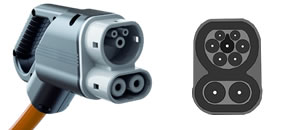 |
| Charging Point | Max. Power | Avg. Power | Time | Rate |
|---|---|---|---|---|
| CCS (50 kW DC) | 50 kW | 50 kW | 44 min | 320 km/h |
| CCS (100 kW DC) | 100 kW | 90 kW † | 25 min | 560 km/h |
| CCS (150 kW DC) | 150 kW | 120 kW † | 18 min | 780 km/h |
| CCS (175 kW DC) | 150 kW † | 120 kW † | 18 min | 780 km/h |
| CCS (350 kW DC) | 150 kW † | 120 kW † | 18 min | 780 km/h |
| This vehicle supports Autocharge |
|---|
| This vehicle supports Plug & Charge |
† = Limited by charging capabilities of vehicle
Autocharge: allows for automatic initiation of a charging session at supported CCS charging stations.
Plug & Charge: allows for automatic initiation of a charging session at supported CCS charging stations in accordance with ISO 15118.
Actual charging rates may differ from data shown due to factors like outside temperature, state of the battery and driving style.

